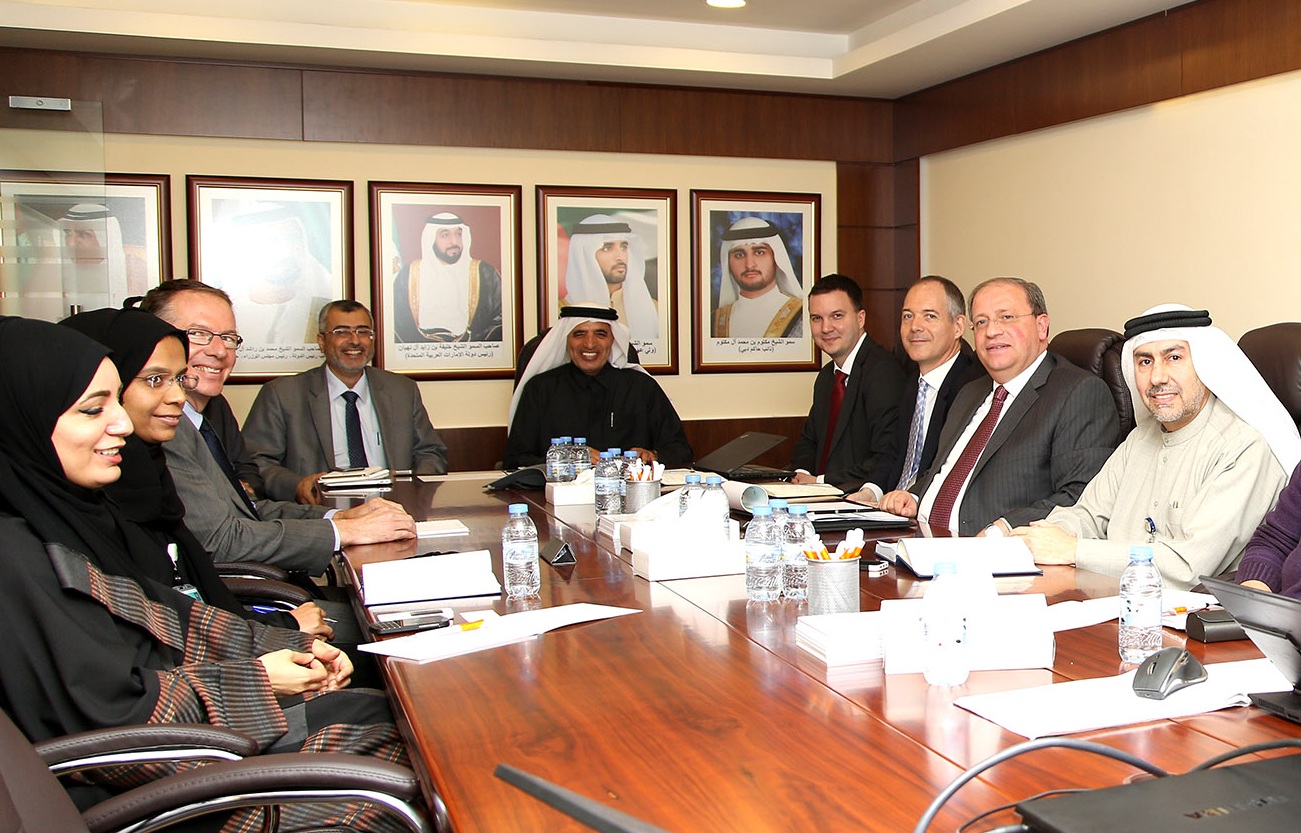
Environment
Energy Demand Management Executive Committee reviews action plan at 7th meeting
The Dubai Supreme Council of Energys Demand Side Management Executive Committee held its seventh meeting at its headquarters, chaired by HE Ahmed Buti Al Muhairbi, Secretary General of the Dubai Supreme Council of Energy. The meeting was attended by Yousef Jebril, Executive Vice President of Power and Water Planning at Dubai Electricity and Water Authority (DEWA) and Vice Chairman of the Committee, Faisal Ali Rashid, Director of Demand Side Management at the Dubai Supreme Council of Energy, Graeme Sims, Executive Director of the Regulatory and Supervisory Bureau for Electricity & Water in Dubai, Stephane Le Gentil, CEO of Etihad ESCO, Samer Khoudeir, Chief Sales & Marketing Officer at Empower, Shamma Al Rahmah, Manager of Business Planning and Performance Management at Emirates National Oil Company (ENOC), and Mustafa Alyousuf, Member of the Regulatory and Supervisory Bureau for Electricity & Water in Dubai.
The Dubai Supreme Council of Energys Demand-Side Executive Committee has been formed in line with the Green Economy for Sustainable Development initiative, launched by His Highness Sheikh Mohammed bin Rashid Al Maktoum, Vice President and Prime Minister of the UAE and Ruler of Dubai. It supports the Dubai Plan 2021 to manage the Emirates resources in a sustainable and innovative way. The committee oversees implementing the Dubai Integrated Energy Strategy 2030 to reduce energy demand by 30% by 2030, said HE Saeed Mohammed Al Tayer, Vice Chairman of the Dubai Supreme Council of Energy.
The Demand Side Management strategy is the first of its kind in the region. It providea new opportunities for companies working in energy services, sustainability, and efficiency. The strategy has 8 programmes to manage energy demand. These include green building regulations, retrofitting of existing buildings, district cooling, wastewater reuse, laws and standards to raise efficiency, and energy-efficient street lighting, added Al Tayer.
The Demand Side Management Executive Committee discussed the progress and future priorities to implement energy efficiency measures in Dubai. We made good results in 2014 in terms of achievements and savings in electricity and water use, with 5% savings in electricity use and over 3% in water use, exceeding the targets set for the year, said Al Muhairabi.
The 8 demand-side management programmes achieved positive results in terms of savings. They have had a positive influence on electricity and water use, particularly the slab tariff system, which was implemented in 2011. They have contributed to increasing savings and implementing green building regulations with Dubai Municipality, outdoor lighting with the Roads and Transport Authority, irrigation efficiency measures with Dubai Municipality, and new standards for appliances presented by the Emirates Authority for Standardisation and Metrology, added Al Muhairabi.
Key priorities that were presented and discussed included continuous support to implement green-building regulations, consider further measures to support key programmes such as retrofitting of buildings, development of technological capabilities, and financing solutions for energy demand-side management programmes, which will become more important in the coming years. The committee discussed options regarding these issues.
The Dubai Supreme Council of Energy follows up on future priorities, taking into account the framework set for Dubai, and benefits from the experience of others in the market. Dubai Government is committed to achieving the goals of efficient use in Dubai. This was underlined by the directive issued recently by HH Sheikh Ahmed bin Saeed Al Maktoum, Chairman of the Dubai Supreme Council of Energy, to monitor electricity and water use in Dubais government buildings. The directive has received strong support from government organisations. This was confirmed by several upcoming projects announced at the workshop hosted by the Supreme Council of Energy last month.
The energy demand-side management strategy uses enabling mechanisms in line with international best practices and similar programmes implemented globally. These include organisations, capacity-building, public awareness and appropriate policy and regulatory frameworks, information systems and measurement, and suitable funding mechanisms for Dubai. The committee reviewed available and suitable finance options for Dubai.
📢
Advertisement Space
750x200 pixels
Click to book this space
Comments (0)
Please log in to post a comment
Login to CommentNo comments yet. Be the first to share your thoughts!